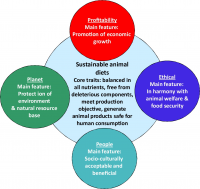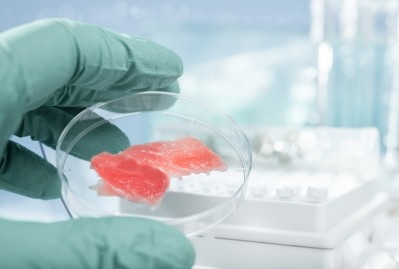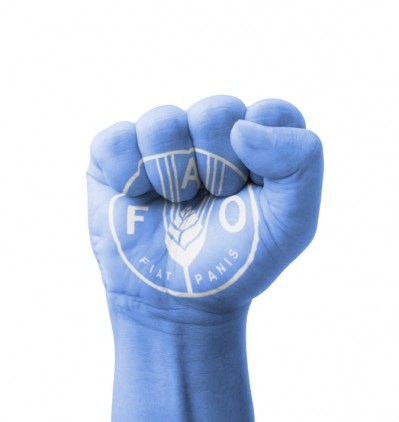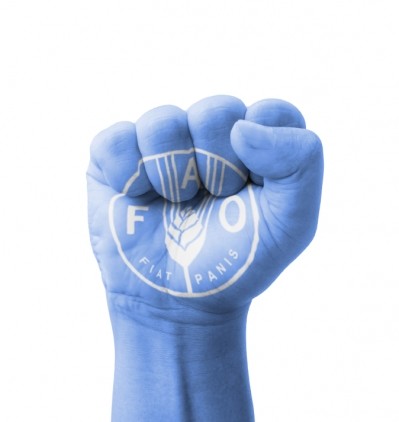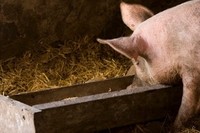FAO sustainable feed survey shows far reaching demand for greater use of food waste in animal diets

“The findings of our review, published in the Animal Feed Science and Technology journal, will allow a multi-criteria evaluation of feed resources based on sustainability in the conventional sense using the Three Ps of planet, people and profit while also incorporating a newer ethical dimension.
The results will also help set priorities in terms of future feed research and development needs,” Harinder Makkar, livestock production officer at the animal production and health division of the FAO, told FeedNavigator today.
He said the industry, up to now, has been evaluating the Three Ps in respect of feed manufacture but often in isolation and not in an integrated manner, with greater weight given to the profit dimension over all else.
“Also, the ethics of using a particular feed, using grain for ruminants for example, has not really been fully considered,” said Makkar.
He stressed the findings do not mean the feed industry will have to be less profitable. "Instead feed producers will need to keep in mind all dimensions of sustainability in terms of future animal feed production," said Makkar.
Maximum yields
Animal feeds and feeding methods, says the UN's Food and Agriculture Organization (FAO), have been designed to achieve maximum yield, often giving high economic benefits, but such an approach has also contributed to ecosystem degradation and global warming through methane and nitrous oxide emissions.
“Moreover, the current systems of livestock production result in high energy consumption at every step, and even more so in the intensive systems. These situations demand attention to examine the excessive use of resources and to consider ways of adopting more efficient processes and systems,” it notes in a report, Towards a Concept of Sustainable Animal Diets.
Sustainable animal diets
Through a consultative process, the Rome based organization had already established a concept of what a sustainable animal diet (StAnD) should consist of.
StAnD integrates the importance of protecting the environment, efficient use of natural resources, socio-cultural benefits, and ethical integrity and sensitivity, in addition to currently recognized nutrition-based criteria in the production of safe and economically viable feed.
And, in an effort to try and generate consensus on how to translate this concept into sound management practices, the FAO elicited the opinion of nearly 1,200 people across academia, industry, farmers’ associations, government organizations, and NGOs.
The results show 59% of the respondents are based in developing countries while 41% are located in the developed markets.
Some of the survey's findings were unexpected, says Makkar.
“We were surprised at how engaged the respondents in developing countries were in relation to environmental issues, which was evident in the high ranking they gave to the importance of protecting the environment, efficient use of natural resources, socio-cultural benefits, and ethical integrity and sensitivity,” he said.
Environmental impact
The most important elements of the Planet dimension of StAnD that emerged through the survey, said the FAO, were the need to minimize water pollution, deforestation and land degradation, the need to reduce air pollution and the value of using locally available feed resources.
Respondents also indicated increased resilience of livestock production systems was vital as was the need to enhance or at least not decrease biodiversity.
Cost of feed products
From the respondents’ perspective, the production of StAnD should not make animal products so expensive that consumers cannot afford them. Production of animal products with ingredients that do not compete with human food was also considered critical.
Researchers and policymakers, said the FAO, should give serious thought to the idea of transforming food waste into a feed resource, given the fact respondents placed this high in the ranking of what would constitute sustainable feed production.
For the Profit dimension, they called for the need to internalize socio-environmental costs to communicate the true price of animal production, followed by a need to enhance benefit:cost ratio for all stakeholders in the livestock sector, and not to worsen volatility in the price of feed ingredients.
Almost 85% of the respondents acknowledged that the ethical dimension should be integrated into the StAnD concept.
In terms of getting sustainable feed production off the ground, the respondents said the initiative should first be taken by farmers and their associations, followed by scientists, regulatory bodies, and industry.
And all stakeholders, they added, need to join forces in developing guidelines and practices for putting the concept into practice.
Source: Animal Feed Science and Technology
Published online ahead of print: doi:10.1016/j.anifeedsci.2014.09.018
Title: Towards sustainable animal diets: A survey-based study
Authors: H Makkar, P Ankers
